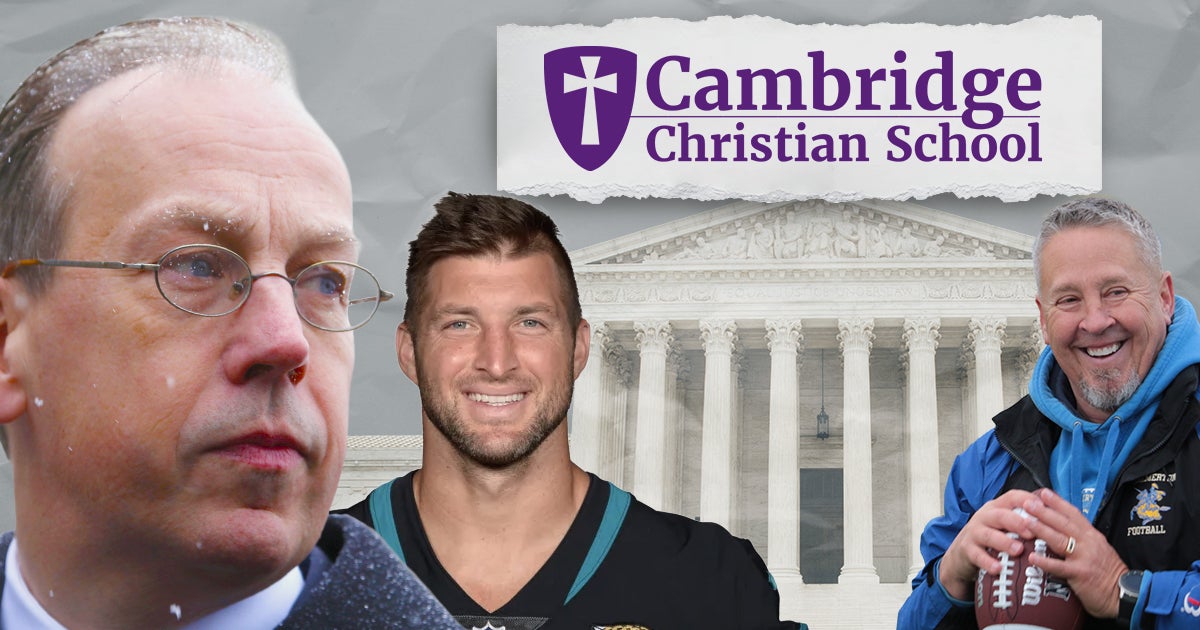
by Jayla Ward • 3 minutes
First Liberty received a tremendous outpouring of support in our pending U.S. Supreme Court case involving Cambridge Christian School, where students were not allowed to pray before a high school football game.
Cambridge Christian and another religious school were told by the Florida High School Athletic Association (FHSAA) that they could not pray over the loudspeaker before kickoff at their state championship game. Officials argued that prayer was an “endorsement” of religion since it would be taking place on government property.
In an alarming ruling, a federal appeals court held that FHSAA could censor religious speech and concluded that the requested prayer of Cambridge Christian was government speech.
The FHSAA’s ban on prayer is unconstitutional—which is why we’re asking the nation’s highest court to correct the injustice done to our clients.
As the Supreme Court deliberates whether to hear this case, Americans are coming together to support Cambridge Christian in this important legal battle.
We are happy to announce that more than 20 friend-of-the-court briefs were filed supporting our clients. The briefs come from a diverse coalition of more than 100 organizations and individuals in arts, sports, faith, and government, including:
In addition to the diverse set of Americans named in the briefs, many other authors came from the nation’s most prominent law firms and noted Supreme Court practitioners, including:
“We grateful to so many who gave of their time to write and file these briefs for the simple proposition that government cannot treat religious speech—like prayer—as second class,” said First Liberty Senior Counsel, Jeremy Dys. “Our hope is that the Supreme Court will take this important case and remind its lower courts of the First Amendment’s double protection for religious expression.”
An Opportunity to Correct Decades of Bad Precedent
The briefs explain that with Cambridge Christian’s case, the Supreme Court has an opportunity to review and possibly overturn a harmful precedent that’s been on the books for 25 years.
The federal appeals court that ruled against Cambridge Christian based its decision on Santa Fe Independent School District v. Doe (2000). That ruling that has stifled the free expression of students for over two decades.
After a high school student council chaplain delivered a routine prayer over the loudspeaker before each home football game, a group sued the district claiming it was unconstitutional. The Supreme Court ultimately ruled that student-led, student-initiated prayer at football games violates the Establishment Clause of the First Amendment.
Our petition to the Supreme Court explains that the lower court’s decision should be reversed in light of Kennedy v. Bremerton School District, First Liberty’s landmark victory for Coach Joe Kennedy.
In Kennedy, the Supreme Court held that private speech, even if occurring on government property, is doubly protected by the Free Exercise and Free Speech clauses of the First Amendment.
That means government cannot censor private religious expression—which includes student-led and student-initiated prayer. Kennedy correctly points out “the Constitution neither mandates nor tolerates that kind of discrimination.”
Jesse Panuccio, of Boies Schiller Flexner LLP, said: “The influx friend-of-the-court briefs in this case demonstrate the dangers of the Eleventh Circuit’s decision, which permits the state to censor religious speech by calling it ‘government speech.’”
“This case shows how important it is for the Supreme Court to continue to make clear that the Constitution forbids religious discrimination in all its guises,” Panuccio added.
Please continue to pray for the Supreme Court justices as they deliberate. The stakes in this case couldn’t be any higher. With this case, the nation’s highest court can strengthen protections for religious freedom, ensuring that all students can freely express their faith without censorship.